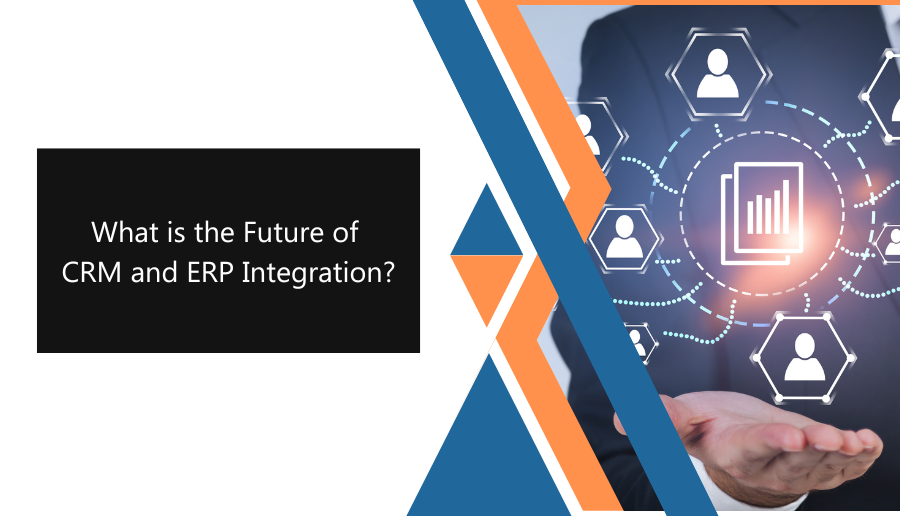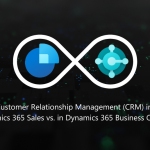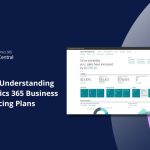Customer Relationship Management (CRM) and Enterprise Resource Planning (ERP) systems can help businesses stay more organized and get ways to optimize their sales strategies and business operations. CRM focuses more on customer service, marketing and sales, and ERP excels more at managing operations such as logistics and finance.
While both have a lot to offer, operating them separately can create some missed opportunities and inefficiencies. Integration of these two systems will provide a business with an inclusive view of its finances, customer interactions, and other business operations. This will lead to increased efficiency and improved decision-making.
In this article, we will review the current state of CRM and ERP integration, how advancement in technology will influence the future of integration, and the benefits it will offer.
CRM and ERP Integration Today
Traditionally, CRM and ERP systems have been considered two separate operations for separate functions. Several organizations did not see the need to integrate the two. However, after learning the benefits of integration, businesses started making necessary changes.
Though integration was the ideal decision, investing in a CRM and ERP system is a huge step for any business. It means making fundamental changes in business operations, adapting to new routines and heavy investments.
Currently, several organizations use a combination of third-party integrations, spreadsheets, and data entry to connect their ERP and CRM systems. While this still has some benefits to offer, the solution doesn’t take advantage of technological advancements.
Without taking advantage of technology when integrating these two systems, a business will face challenges such as ensuring data consistency and accuracy across both systems, leading to manual errors and duplicate data.
The Future of CRM and ERP Integration
The digital age and advancement in technology have had a huge impact on CRM and ERP integration. Here’s how technology is impacting tools such as Microsoft dynamics 365 Sales (CRM) and Microsoft Dynamics 365 Business Central (ERP).
Artificial Intelligence (AI)
CRM and ERP systems providers have already included AI and Machine Learning (ML) in the software. AI tools and ML is playing a huge role in streamlining and automation integration processes. The systems are built to generate fast and more accurate data through AI. ML and AI offer:
- A deeper understanding of customers
- Faster sales assistance
- Smarter customer service
You will reduce manual errors, improve efficiency and increase productivity.
Cloud Computing and SaaS
SaaS and cloud computing increase scalability and flexibility. Through cloud computing, users will be able to access data from anywhere, regardless of their location and across different devices.
This supports remote working and also ensures users can respond to customer inquiries or make critical decisions fast.
APIs and Integrations
Businesses will be able to go all in and streamline their application more by using API integration to connect their ERP and CRM systems. This will allow the systems to exchange data seamlessly and improve accuracy and efficiency.
The Emergence of Next-Generation ERP and CRM Systems
ERP and CRM providers are working on machine learning, AIoT, and other smart features to improve the functions of the systems. A smarter system, which will be built by using new-age technologies, will be less dependent on humans for segregating and storing the data it processes and will be more efficient.
The next-generation systems will have better business intelligence, enhanced workflows, global or scalable financial functionality, flexible commerce, and more.
Additionally, to ensure data security and business continuity, the systems will also focus on improved data privacy and security solutions. Only systems that ensure the protection of sensitive data and have robust security features will make it in the future.
The next-generation ERP and CRM systems will also address the increased demand for personalized customer experiences. The systems will provide businesses with a complete view of their customer’s interactions and also allow personalized interactions.
The Benefits of CRM and ERP Integration
Companies are always looking for ways to improve customer service delivery and make their business operations more efficient. Integrating CRM and ERP systems offer businesses a huge potential for growth. A single data model can benefit your business in several ways.
Improved Data Accuracy and Consistency
Integration with cloud-based systems and digital tolls will give users real-time access to data. Users will not have to enter data manually. This means they can give more accurate quotes, get real-time information about each customer, and more.
Data will automatically flow from one tool to another, and businesses will have more confidence and quality data.
Increased Efficiency and Productivity
Having an automatic system saves time and also increases efficiency. Since users will not have to enter data into the systems manually and the data is centralized on one platform, there will not be any errors or time wastage. You will save time and money and increase your productivity.
Better Customer Experience
Technology allows users to view customer data on one platform instead of separate systems. Users can access all customers’ questions from a single screen. This will save time and also ensure the team can respond to and resolve customer inquiries fast.
The level of accuracy and consistency integration will provide a more personalized customer experience, which is key to having happy and loyal customers.
Increased Competitiveness in the Market
Integrating CRM and ERP systems gives businesses access to real-time data analytics. This makes it easier to identify trends, track key performance indicators (KPIs) and make better business decisions.
By integrating the systems and using technology, businesses will not have to rely on guesswork when making decisions. Instead, you will have valuable insights into the market, which offers a competitive advantage.
The integration of CRM and ERP systems is necessary for all business that wants to have a competitive advantage, especially in today’s digital age. It will provide businesses with comprehensive data and a view of customer interactions, which will lead to increased efficiency, productivity and better decision-making.
Final Thoughts
There’s no denying that CRM and ERP integration is beneficial, but if you haven’t already integrated your systems, you may miss out on opportunities and fall behind your competitors who are up to date with technology. As technology advances, you can expect the next generation of CRM and ERP systems to offer more. If you want to have that competitive edge, contact Microsoft Dynamics Partner like TMC and learn more about integration and the benefits it will offer your business.






